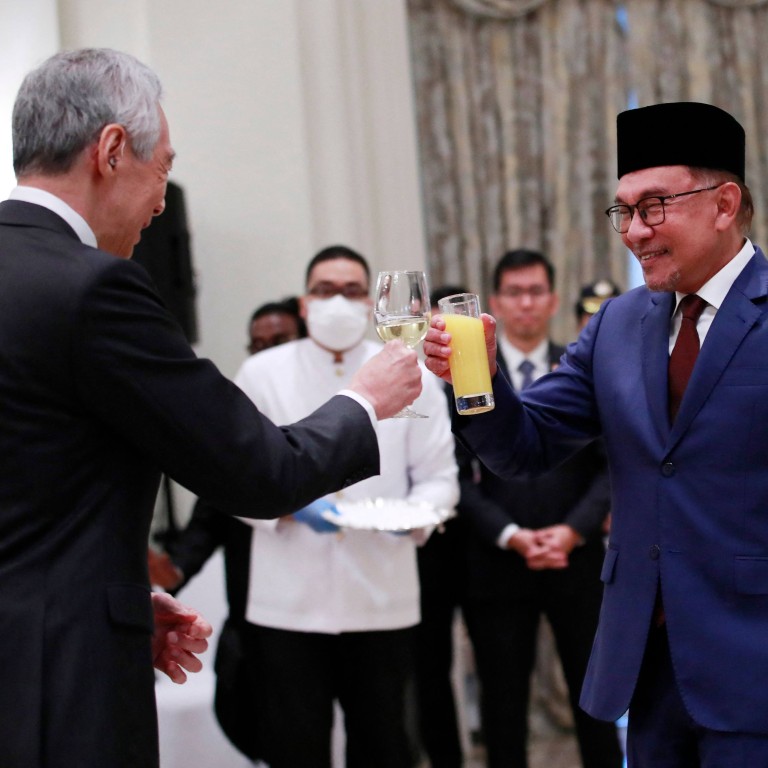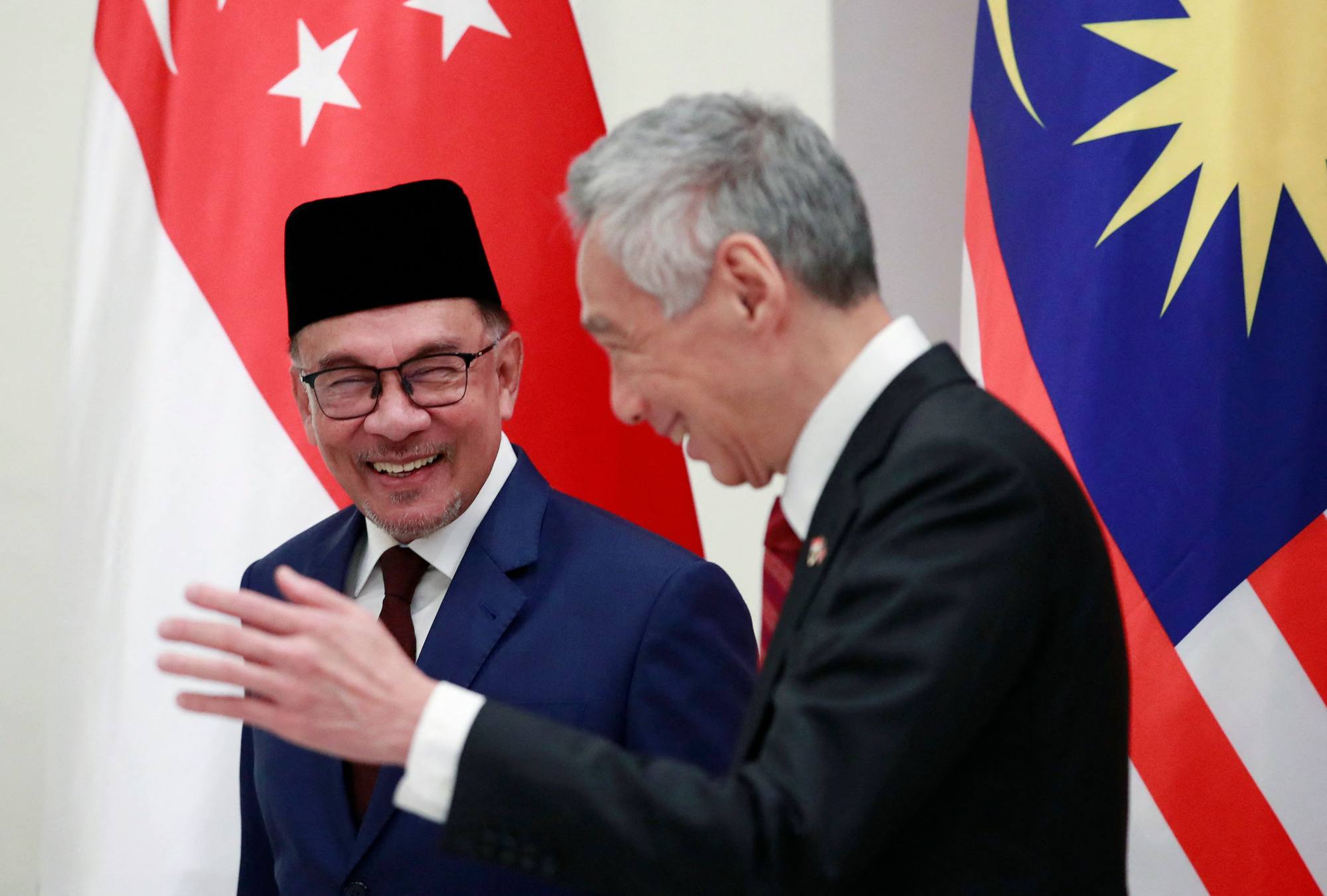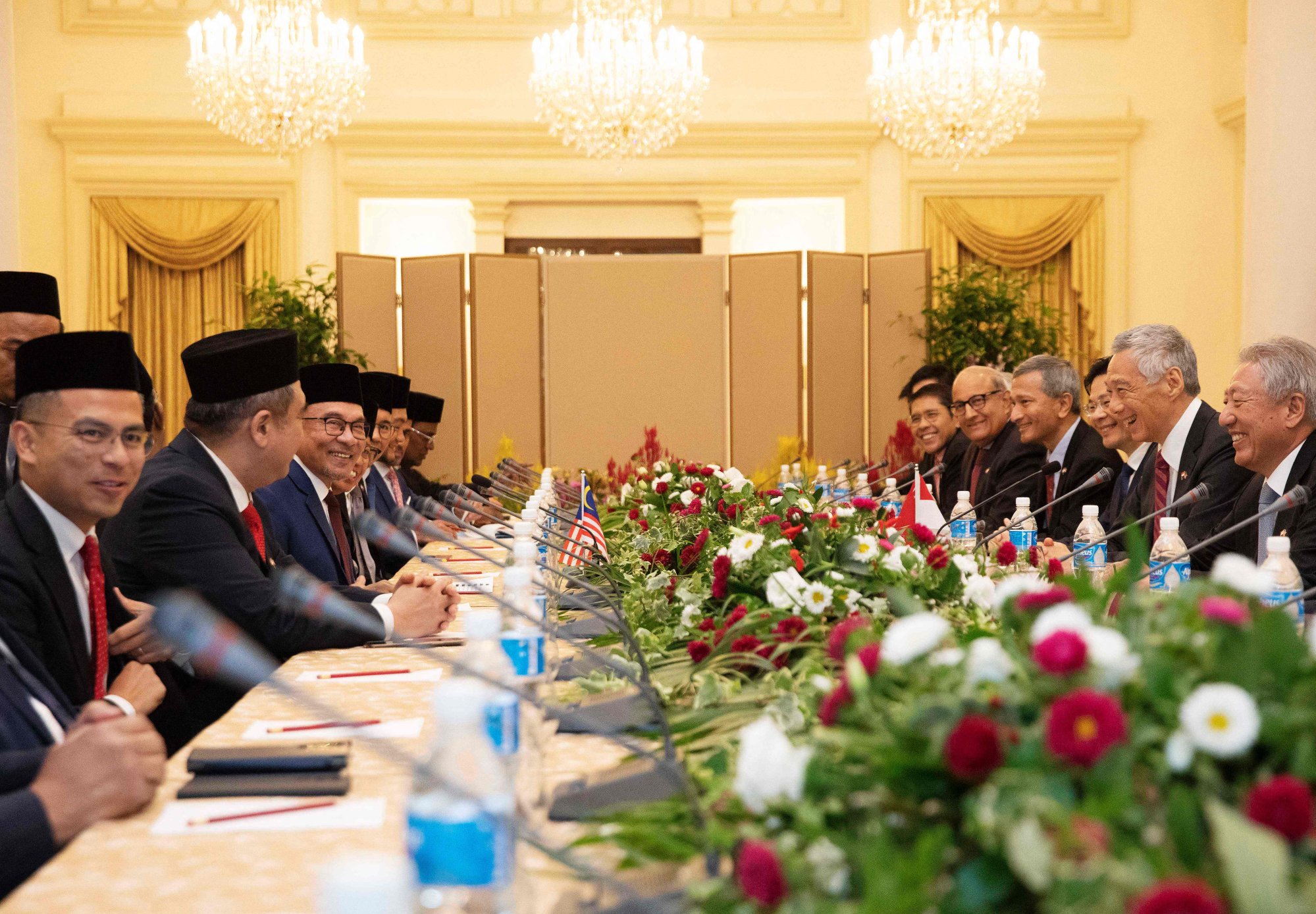
Anwar Ibrahim’s visit signals Malaysia-Singapore ties remain on an even keel
- Three agreements were signed during Anwar Ibrahim’s trip to Singapore, with the PM saying there were more areas of cooperation yet to be explored
- Ties remain strong but occasional frictions such as Pedra Branca island and the cancellation of the Kuala Lumpur-Singapore rail project remain
The Malaysian leader said he was committed to deepening the relationship with Singapore, highlighting that “we can do so much more for the benefit of our people”.

But even as both nations seek more areas to collaborate on, unresolved issues can threaten how agreements progress.
Idris Harun told the prime minister that Malaysia respected the decision made by the International Court of Justice in 2008, when it ruled that Singapore had sovereignty over Pedra Branca.
Malaysia, Singapore sign deals to deepen ‘long-standing and immutable’ ties
The territorial dispute dates back to 1979, when Malaysia first published a map indicating the island was within its waters. The matter was brought to the world court in 2003.
From time to time, there have been calls in Malaysia to review matters pertaining to claims over Pedra Branca. This has as much to do with Malaysian domestic politics – with some leaders being sceptical of Malaysia’s engagement with Singapore – as with bilateral relations.
On Singapore’s end, it has consistently maintained it has sovereignty over Pedra Branca, with its foreign affairs ministry just last October saying the country stood ready to “robustly defend” the island.
Meanwhile, Malaysia in March 2021 had to pay Singapore S$102.8 million (US$78 million) in compensation for terminating the rail project aimed at linking Kuala Lumpur to Singapore, a deal established during the Najib administration.

However, there remains interest in Malaysia in reviving the high-speed rail on account of the vast economic benefits it would bring. In particular, the Sultan of Johor has reportedly discussed plans with Anwar to revive the project.
While such issues are undoubtedly talked about by leaders when they meet, it will take time for them to be resolved.
When Singapore’s foreign minister Vivian Balakrishnan visited Malaysia last month, he said the city state was confident of making “significant progress” in resolving bilateral issues imminently. While he did not reveal further details, his comments piqued hopes that Anwar’s subsequent visit might see announcements on some unresolved topics.
Malaysia’s foreign minister Zambry Abdul Kadir adopted a more cautious tone, saying before the meeting of the two prime ministers that bilateral issues would continue to be discussed in a “constructive and productive context”.
Anwar and Lee both said they had talked about sensitive issues last week but remained tight-lipped about the nature of their discussions, leaving any major announcements wanting.

Anwar has stated that one of the priorities of his administration would be to revitalise the economy. To that end, increasing trade and trade-related cooperation with Singapore, and any other country, would be beneficial for his administration and Malaysians. However, he will need to carefully manage the optics of his engagement with Singapore.
Recently, Malaysia’s Local Government Development Minister Nga Kor Ming had to deny allegations that experts from Singapore were consulted to compensate for the Malaysian civil service’s inefficiencies in housing matters.
Nga had said that Singapore had agreed its Housing Development Board (HDB) contractors could visit his ministry to share their knowledge on building affordable housing.
Nga apparently had plans to invite experts from other countries, not just Singapore, to improve Malaysia’s housing policy. But he was accused by the chief minister of the state of Kedah of having a hidden political agenda by inviting the city state’s experts.
Opposition MP Wan Saiful Wan Jan went further, accusing Anwar’s Pakatan Harapan coalition of using Singapore’s affordable housing formula to undermine Malay property ownership in Penang and possibly other states.
Speaking in Malay in a speech during his Singapore visit, Anwar brushed aside the controversy. Still, it is noteworthy that his administration has been served due notice of the undercurrent of reservations among some Malaysians for engaging Singapore too closely.
Malaysia’s Anwar fires back against ‘nepotism’ claims after giving daughter job
The upshot of Anwar’s visit is that Malaysia-Singapore relations remain on an even keel. For Malaysia, this is in line with its foreign policy, which emphasises promoting economic benefits for its national interest.
Anwar’s immediate agenda of galvanising the Malaysian economy by attracting quality investments and building on trade relationships will be served well with increased cooperation with Singapore.
While Anwar had said during his Singapore visit that “no issue should be left unresolved”, resolving more problematic bilateral issues is not an immediate priority.
Especially if he would have to expend precious domestic political capital in defending the necessary compromises that come with such settlements.
Nawaljeet Singh Rayar is an Associate Research Fellow with the Malaysia Programme at the S. Rajaratnam School of International Studies (RSIS), Nanyang Technological University (NTU), Singapore.

